Community and justice services professionals often work with clients who find themselves at a crossroads. They work within the justice system – focusing on keeping people out of it through prevention, intervention and rehabilitation. Help build stronger, safer communities by helping people at risk gain the skills and support they need to make positive life choices.
Find your career
Train for a rewarding career and help make a real difference in the lives of people at risk.
- Work with clients ranging from children to young offenders to adults, and people with addictions, developmental delays and mental health challenges.
- There are opportunities in a vast range of settings: youth custody facilities, child welfare homes, federal and provincial correctional facilities, attendance centres, community justice agencies, victim support agencies and a variety of residential facilities for people at risk.
- Grads who successfully complete the provincial or federal correctional system recruitment process will receive additional training upon employment.
- There is such a strong demand for community and justice services professionals that many students receive job offers before they graduate.
Our grads get great jobs
- Correctional Officer, Ministry of Community Safety and Correctional Services
- Child and Youth Worker, Terrace Youth Residential Services
- Probation and Parole Officer, Ministry of Community Safety and Correctional Services
- Youth Services Officer, Ministry of Children and Youth Services
- Child and Youth Worker, Bayfield Treatment Centres/Connor Homes
- Correctional Officer, Correctional Service of Canada
- Adult Residential Worker, Pathways to Independence/Kerry’s Place Autism Services
- Branch Service and Support Coordinator, Canadian Mental Health Association of Leeds and Grenville
- Integrity Services Investigator, Service Canada
Is it for you?
Students entering this program should have a strong desire to make our communities safer. Successful candidates are:
- Excellent communicators
- Good listeners
- Committed to helping others
- Open to self-reflection and personal growth
Experiential learning
Our program adapts to emerging policies and best practices to prepare students for the workplace — with practical, hands-on learning:
- Sharpen your assessment and communication skills during scenario-based role-plays, emphasizing personal safety and the protection of staff, clients and the community.
- Visit adult and youth detention facilities and earn a certificate in Non-Violent Crisis Intervention.
- Hear from guest speakers who share their real-life experiences with post-traumatic stress, suicide interventions and fetal alcohol spectrum disorder, as well as professionals working in group homes, federal and provincial corrections and sexual assault centres.
- Help clients across the spectrum of the justice system with a three-fold focus on prevention, intervention and reintegration.
Outstanding faculty make the difference
- Students build strong connections with their professors and each other in small, tight-knit classes
- Faculty draw from a range of professional experience working in detention facilities as well as residential, educational and open custody settings
- Instructors bring varied expertise in counselling, mental health and addictions, probation, parole and working with at-risk youth
- The program stays up to date and relevant with ongoing feedback from graduates and an advisory committee of current industry professionals
Multiply your options in justice studies
As you get a feel for different careers in the field of justice, it’s important to find the right fit for you. A common first-year curriculum allows the flexibility to transfer directly into year two of:
- Police Foundations
- Protection, Security and Investigation
- First Year - Semester One
- LAWS1008 Canadian Criminal Justice System
-
This course provides students with an overview of the Canadian criminal justice system with a particular emphasis on the function, role and organization of the primary components of the system. There will be particular focus on; victims, enforcement, courts, corrections and the political framework under which the Canadian Criminal Justice System operates. The function of the criminal justice system will be examined in relation to issues affecting the system.
- COMM1048 College Writing Skills
-
This course focuses on writing and research skills required for successful completion of college-level studies. The course will promote development and improvement of research and writing skills that can be applied to students’ chosen programs of study.
- ETHI1000 Ethical Considerations in Justice
-
This course focuses on concepts of critical thinking and ethical issues faced by individuals in their personal and professional lives. Theories of morality and professional codes of ethics will be examined. Students identify and clarify their values and learn the basics of moral reasoning and ethical behaviour. Students apply critical thinking skills and ethical decision-making models to personal and professional dilemmas.
- COMM1051 Interpersonal & Group Dynamics
-
In this introductory level course, students learn to apply knowledge from interpersonal relations and group dynamics to working in a team. Emphasis will be placed on developing awareness of one's self to enhance effective communications individually and in groups.
- FITN1010 Lifestyle Management & Fitness 1
-
Students will develop an understanding of wellness concepts and practical strategies for developing a healthy lifestyle. Students study and implement prerequisites for developing and maintaining personal physical fitness programs. Students will develop and implement personal strategies to meet fitness standards required by the various justice agencies.
- SOCI1003 Sociology
-
Sociology and Canadian Society is an introductory course in which the basics of sociology and social theory are presented. Topics include social theory, research methods, culture, socialization, race and ethnicity, and family.
- GNED1100 Becoming a Global Changemaker
-
This Loyalist College graduate attributes course will help shape your perspectives, broaden your understanding of important issues affecting our societies today, and equip you with invaluable knowledge and skills that will inform your ability to influence your community in a meaningful and impactful way. By exploring topics such as cultural competency, Indigenous education, entrepreneurship, sustainability, health and wellness, and ecological literacy, you'll be equipped with a powerful toolkit that extends far beyond the classroom.
- First Year - Semester Two
- PROF1014 Career Resource Development
-
This course focuses on developing strategies, attributes and skills to assist the learner with preparation for future employment within the Justice fields. Content includes establishing a positive professional image, developing a career plan, résumé writing, professional presentations and exploration of future career options.
- SOCI1018 Conflict Management & Crisis Intervention
-
This course is designed to develop the first responder's ability to intervene safely and effectively in situations involving interpersonal conflict and/or individuals in crisis. Intervention techniques will be stressed along with practical application of effective communication skills, which are essential to safely manage anxious, disruptive, suicidal and violent behaviours.
Prerequisite: COMM 1051
- LAWS1003 Criminal and Civil Law
-
This course examines various aspects of the Canadian criminal law system, including the Criminal Code of Canada, the Canadian Charter of Rights and Freedoms, and laws pertaining to the classification, collection and presentation of evidence. Various components of civil law, including tort, contract, property, family and employment law are explored.
Prerequisite: LAWS 1008
- SOCI1016 Criminology
-
This course is an examination of the contemporary theories of crime and deviance. The application of sociological, biological and psychological theories to specific areas of crime and deviance will be explored. Learners will examine victimology, and will also apply theories and crime data to demonstrate knowledge of criminal justice legislation and policy initiatives.
- LAWS1009 Issues in Diverse Populations
-
In this course, students critically identify and examine issues in diversity. Specifically, students focus on topics pertaining to inequality in various social settings, including but not limited to: race, gender, ethnicity, class, and sexual orientation. Incorporating social/legal explanations of diversity, students develop a clear understanding of the impacted groups and possible strategies of community empowerment. The student is encouraged to increase the knowledge and awareness of important issues in the Indigenous cultures of Canada. The legal status of Indigenous peoples is explored along with Indigenous rights and self-determination. Other critical issues relating to land claims, justice and social services are studied.
- FITN1011 Lifestyle Management & Fitness 2
-
Lifestyle Management and Fitness 2 includes an introduction to physical standards required in the criminal justice field. This course will also explore health issues commonly associated with careers in the criminal justice fields (including back health, stress and shift work). Students will learn to self-assess their own physical fitness and formulate and implement a plan to improve personal fitness conditions.
Prerequisite: FITN 1010
- PSYC1003 Psychology
-
This introductory-level course introduces students to terminology, concepts, and theories of psychology, including the historical development of psychology, biological basis of behaviour, learning and memory, perception and consciousness, motivation, lifespan and personality development, and abnormal behaviour.
- GNED General Education Elective
- General Education Courses
- Second Year - Semester Three
- PSYC2011 Abnormal Psychology
-
This course involves the study of abnormal behaviour and the application of that knowledge by graduates of the CJS program in the workplace. Students study the classification, diagnosis and legal components of mental illness and the impact it has on the individual, family and community. Specific groups of disorders, as classified by the American Psychological Association in the current Diagnostic and Statistical Manual, will be studied to assist the graduate in recognizing and responding to abnormal behaviour.
Prerequisite: PSYC 1003
- WKPL2003 CJS Practicum 1
-
To provide students with the opportunity of observing career orientated functions and perform a variety of assigned tasks within the program goals.
Prerequisite: PROF 2024
- CJSW2006 Community & Client Services
-
This course explores the structure and administration of community organizations and client services that operate within and adjacent to the criminal justice system. This course further explores the issues, gaps and trends in services and legislation that effect community and client services.
- COUN2014 Introduction to Counselling
-
This is an introductory course in essential interviewing/counselling skills. Techniques used in correctional, residential and/or community-based environments will be discussed and modelled. Specific emphasis is placed on practical information and experiential learning through the use of simulated individual and group counselling sessions.
Prerequisite: COMM 1051, PSYC 1003
- CJSW2000 Penology
-
This course is designed to introduce students to the principal aims of penal science: to discuss the purposes, principles of sentencing and examine evidence-based correctional practices: to review penal laws and procedures throughout history and assess their social consequences. The learner will be introduced to the range of correctional facilities and programs, including the roles and responsibilities of those who perform them, and will participate in case management activities for related offender populations in the provision of correctional services. This knowledge of the correctional system in Canada will assist in the transition to become an effective community and justice services employee.
- PROF2024 Placement Preparation
-
Designed to prepare students for field placements in Semesters 3 and 4, the course focuses on placement/career preparation, planning, implementation of the plan, and deals student issues that have historically arisen during placement.
- LAWS2009 Youth in Conflict
-
This course is designed to guide students in an analysis of the Canadian youth justice system and the Ontario child protection system. This course will familiarize students with the purpose, principles and administration of both the Youth Criminal Justice Act and the Ontario Child and Family Services Act.
- GNED General Education Elective
- General Education Courses
- Second Year - Semester Four
- PSYC2012 Addictions & Mental Health
-
This course focuses on persons with mental health, addiction, and concurrent disorders. Students will be exposed to many facets of addictions including the process and stages of addiction, theories, treatment interventions, stigma, personal attitudes, as well as an introduction to basic pharmacology. Students will study how people with mental health and addiction problems interact within the community and the justice field, as well as explore unique approaches and interventions to work effectively with these populations.
Prerequisite: PSYC 2011
- PROF2030 CJS Career Preparation
-
This course is designed to prepare students for employment by strengthening personal resiliency, identifying prospective employers, enhancing relevant employment skills, preparing effective resumes and portfolios, and completing an employment interview simulation. Students will also benefit through numerous guest speaker presentations from potential employers and recent graduates from various related careers.
Prerequisite: PROF 2024
- WKPL2004 CJS Practicum 2
-
Practicum provides students the opportunity to integrate/apply theoretical knowledge in practical experiences. It further assists in broadening or clarifying goals as students discover, develop and refine skills and competencies for their desired career.
Prerequisite: WKPL 2003
- CJSW2002 Principles of Case Management
-
This course is designed to present students with a variety of approaches that lead to the acquisition of case management skills and techniques that are applicable for work within various Human Service consumer populations and age groups. This course acquaints students with the philosophy, history and "best practice" of case management. Emphasis is given to ethical and policy considerations faced by human service practitioners, ethical decision making, professional competence, self-disclosure, confidentiality, and related topics as they apply to working as part of a case management team.
Prerequisite: CJSW 2006
- CJSW2005 Programming for Intervention & Reintegration
-
This course acquaints students with the philosophy, history and "best practice" of effective programming. Designed to familiarize students with a variety of program models used for intervention/reintegration, the learner will have the opportunity to practice the skills and techniques that are applicable for work within various human service consumer populations and age groups. The methods and techniques of course delivery will include standard lectures, case studies, video presentations, and group work/discussion.
Prerequisite: COUN 2014
- CJSW2008 Safe & Secure Environments
-
This is a lecture/laboratory course designed to familiarize students with historical and contemporary protocol and procedures used in federal/provincial adult correctional, provincial youth custodial and provincial/private residential/treatment facilities in Canada.
- CJSW2007 Special Populations
-
This course focuses on populations within the community and justice field that require unconventional approaches to the provision of service and care. Policies, practices, legislation and services will be examined in relation to special populations, and the challenge of working within the parameters of the human services and justice system will be explored.
Prerequisite: PSYC 2011, SOCI 1016
*Courses subject to change.
Loyalist offers flexible learning
- You can start your two-year program in September or January
- A common first-year curriculum allows the flexibility to transfer directly into year two of Customs Border Services, Police Foundations or Protection, Security and Investigation
Pathways for Justice Studies Graduates
Graduates can double their career options by completing a second Justice Studies diploma at Loyalist in just one additional year! Many universities across Canada and abroad will provide credit recognition for your diploma studies at Loyalist College. Learn more about available pathways.
Turn your diploma into a degree
Many universities across Canada and abroad will provide credit recognition for your diploma studies at Loyalist College. The following is a list of agreements that are currently in place. There are many more options, and new agreements are added annually. Contact your university of choice to make individual arrangements. Click here for more information about university transfer agreements.
- Algoma University – B.A.; B.B.A.; B.Sc.; Bachelor of Computer Science
- Brock University – various*
- Carleton University – Bachelor of Arts (Honours)
- Conestoga College – Bachelor of Community and Criminal Justice
- Davenport University – Bachelor of Arts in Public Safety and Security Management
- Georgian College – Bachelor of Human Services in Police Studies
- Humber College – Bachelor of Applied Arts in Criminal Justice
- Lakehead University – Bachelor of Arts and Science (Honours) in Criminology
- Laurentian University – Bachelor of Arts (General) Law and Justice
- Laurier Brantford – any honours program
- Limerick Institute of Technology – Bachelor of Arts (Honours) in Community Development (Year 3)
- Nipissing University – Bachelor of Arts in Criminal Justice
- Royal Roads University – Bachelor of Arts in Justice Studies
- Seneca College – Bachelor of Interdiscipinary Studies
- University of Fredericton/Husson University – Bachelor of Science in Criminal Justice
- University of Guelph – Bachelor of Applied Arts (General) Justice Studies or Bachelor of Arts and Science in Justice Studies
- Ontario Tech University – Bachelor of Arts (Honours) in Criminology and Justice or Forensic Psychology; B.A. Adult Education and Digital Technology
- University of Waterloo – various*
- Wilfrid Laurier University – various*
- York University – various*
* Various potential degree pathways. Please confirm details with the receiving institution.
Study Abroad
Explore opportunities to continue your studies in Ireland:
How much will it cost?
Approximate costs (2023 – 24)
- Domestic Tuition: $2,722.08
- Full-Time Ancillary Fees:* $1,308
- Total: $4,030.08
Additional costs, such as supplies, travel and parking, may be incurred during workplace visits, etc.
*Fees related to programs that are less than or greater than two semesters will be adjusted accordingly. Fees are subject to change. Please visit the Tuition and Fees web page for a list of the many services, activities and items included within the ancillary fees, and the related policies.
Bursaries and financial assistance
Loyalist has a number of scholarships, bursaries and academic awards available to students. Our Financial Services Office can help you explore your options, or assist you with a student loan.
Admission requirements
Required academic preparation
- OSSD/OSSGD or equivalent with courses at the general, advanced, (C), (U) or (M) level, and
- Grade 12 English (C) level or equivalent
OR
- Mature applicant
- Applicants with a related degree or diploma may be considered for advanced standing or direct entry into year two; please review your qualifications with the program coordinator.
Applicants who possess a related college diploma (i.e. human studies, justice services) are eligible for direct entry into year two of the program.
Applicants who possess an unrelated college diploma are considered on a case-by-case basis for direct entry into year two.
Applicants who possess a university degree are eligible for direct entry into year two of the program; however, applicants should meet with their program coordinator regarding appropriate course and program planning.
Please Note: Direct entry is subject to availability. Direct entry into year two, semester three is only available during the Fall term. Applicants interested in applying for direct entry should contact Enrolment Services to discuss next steps before completing an application at ontariocolleges.ca.
Additional requirements
Prior to placement in year two of the program, students will be advised by faculty how/when they must obtain:
- A Criminal Record Check (CPIC) and Vulnerable Sector Check
- Standard First Aid and Level "C" CPR with AED certification
- A formal confidential health history
If you have been convicted of an offence under the Criminal Code for which you have not been pardoned, you may be ineligible for field placement. Please contact the coordinator to discuss your options.
Prospective students with special needs or limitations that may affect their placement or potential employment opportunities are encouraged to discuss their career goals with faculty prior to admission.
Recommended academic preparation
- Computer proficiency in word processing, file management, email and Internet browsing.
- Consistent volunteerism is highly recommended to gain employment in the correctional system.
- Applicants interested in becoming Provincial Correctional Officers or a Provincial Youth Services Officers in Ontario are strongly encouraged to familiarize themselves with the requirements of these positions. Minimum standards are on the Ministry of Community Safety and Correctional Services or the Ministry of Children and Youth Services websites.
Prior learning assessment and recognition
Applicants with work experiences or other types of non-credentialed learning may be eligible for credits at Loyalist. Graded credits (as opposed to exemptions) are granted. Click here for more information about our assessment and credit challenge process.
International students
Click here for information about how to apply, international student fees and more.
Campus News
LOYALIST COLLEGE TO OFFER DEGREE PROGRAMS THROUGH LIMERICK INSTITUTE O...
 Belleville, Ontario, May 4, 2018 – Graduates of numerous Loyalist College two- and three-year diploma programs now have the opportunity to earn a degree in as little as one academic year through ad... Read More
Belleville, Ontario, May 4, 2018 – Graduates of numerous Loyalist College two- and three-year diploma programs now have the opportunity to earn a degree in as little as one academic year through ad... Read More
Why Wait?
 It may seem like the time is never quite perfect to start a new chapter in your life. But why wait? A journey of a thousand miles begins with a single step. Loyalist College offers a variety of progra... Read More
It may seem like the time is never quite perfect to start a new chapter in your life. But why wait? A journey of a thousand miles begins with a single step. Loyalist College offers a variety of progra... Read More
Start This January at Loyalist College
 Why wait until September when you can start the New Year training for a rewarding career?
Why wait until September when you can start the New Year training for a rewarding career?
January start programs at Loyalist College are an excellent opportunity to retrain, build on current creden... Read More
Focus on Families

By Jessica Dodge, Loyalist College graduate
I graduated from the Community and Justice Services Worker program at Loyalist College in 2011. Now, I work for the Canadian Mental Health Asso... Read More
In the News
 Gananoque Observer
Gananoque Observer
 Belleville Intelligencer
Belleville Intelligencer
 County Live
County Live
 Quinte News
Quinte News
 Belleville Intelligencer
Belleville Intelligencer
 Quinte News
Quinte News
 InQuinte
InQuinte
 Inside Ottawa Valley
Inside Ottawa Valley
 Belleville Intelligencer
Belleville Intelligencer
 Belleville Intelligencer
Belleville Intelligencer
 Belleville Intelligencer
Belleville Intelligencer
 Belleville Intelligencer
Belleville Intelligencer





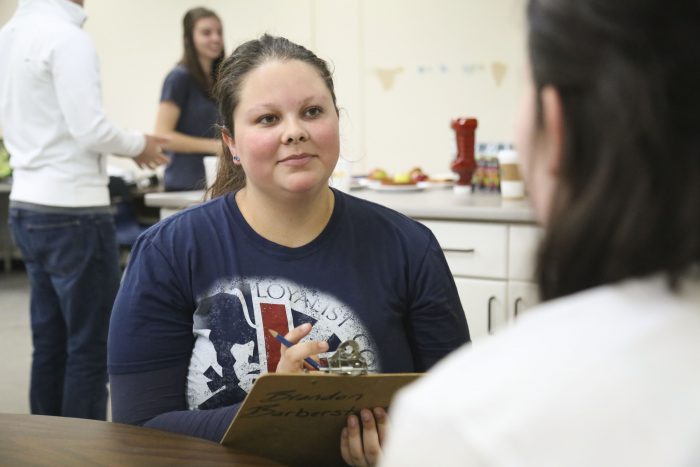
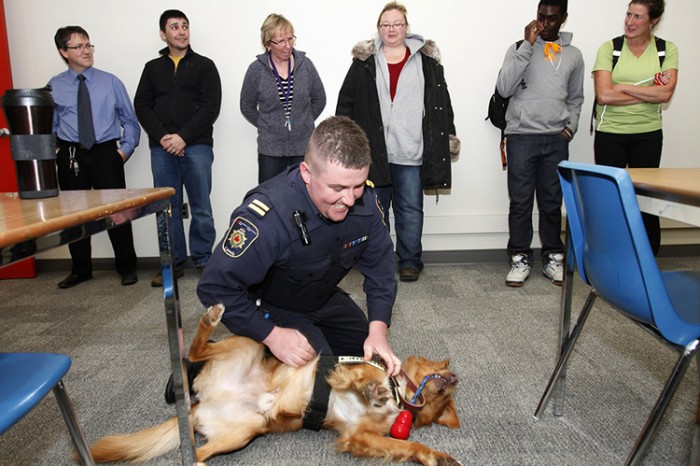
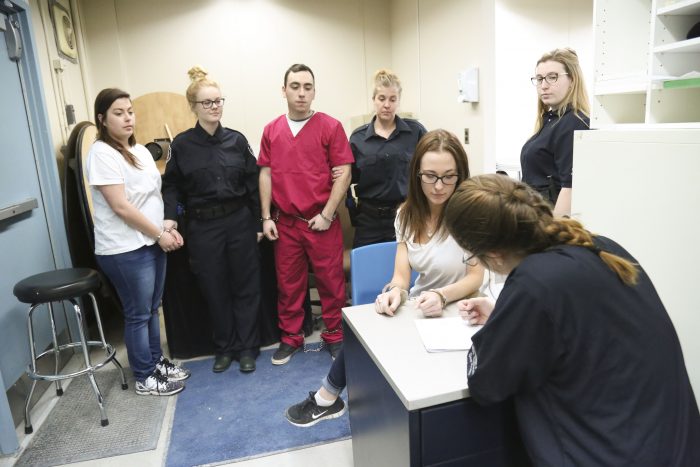

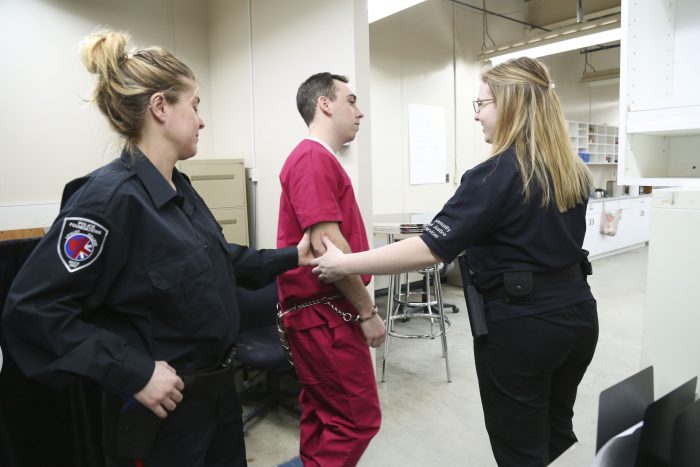
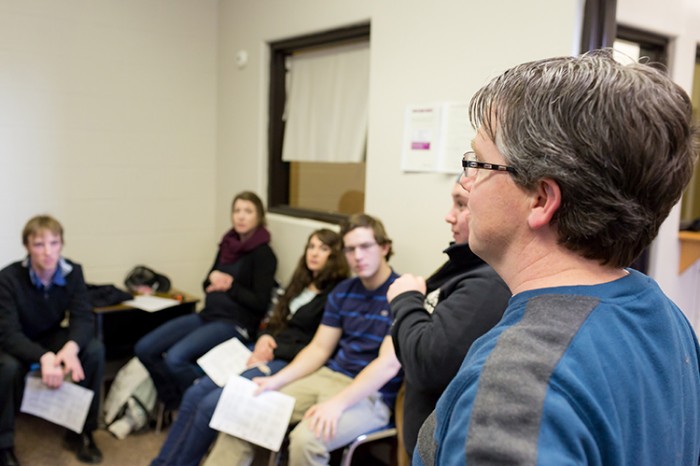
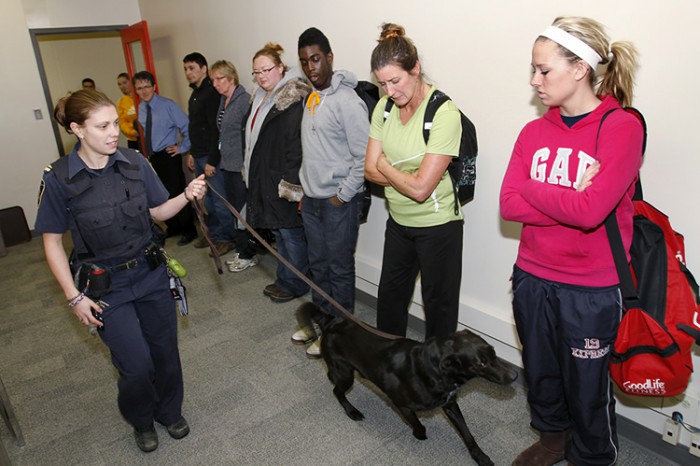
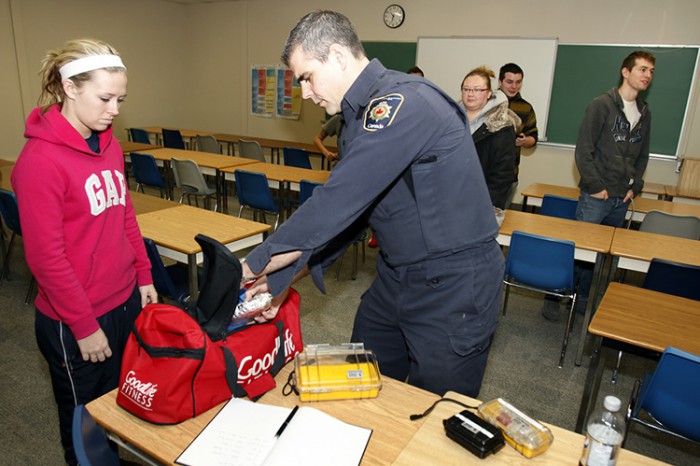
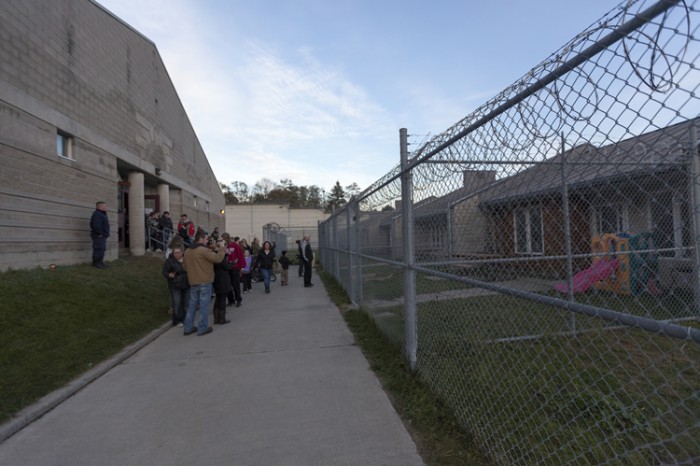
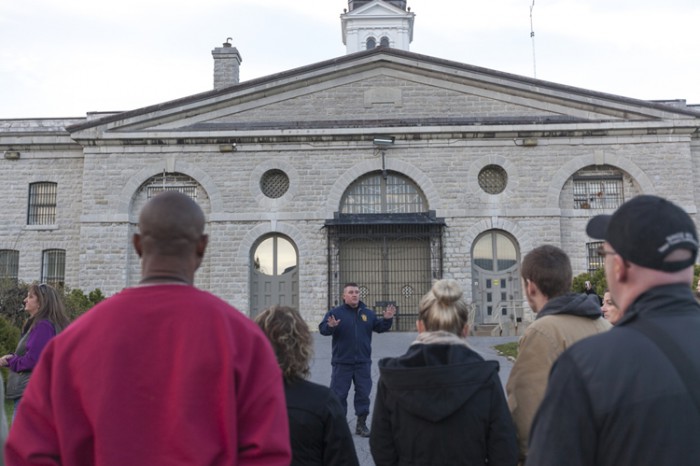

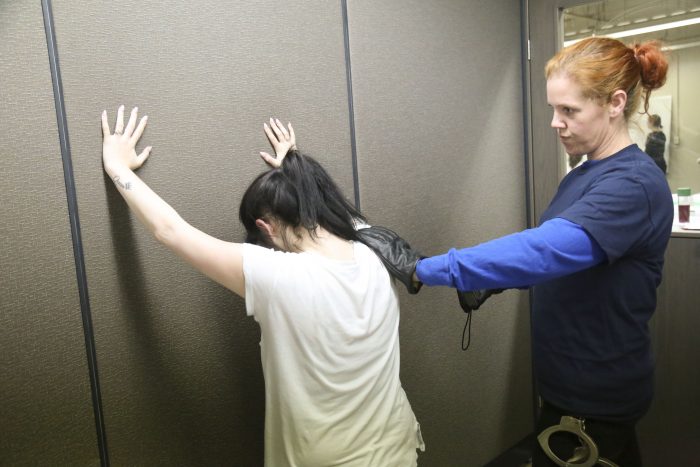
 Belleville, Ontario, May 4, 2018 – Graduates of numerous Loyalist College two- and three-year diploma programs now have the opportunity to earn a degree in as little as one academic year through ad...
Belleville, Ontario, May 4, 2018 – Graduates of numerous Loyalist College two- and three-year diploma programs now have the opportunity to earn a degree in as little as one academic year through ad... 